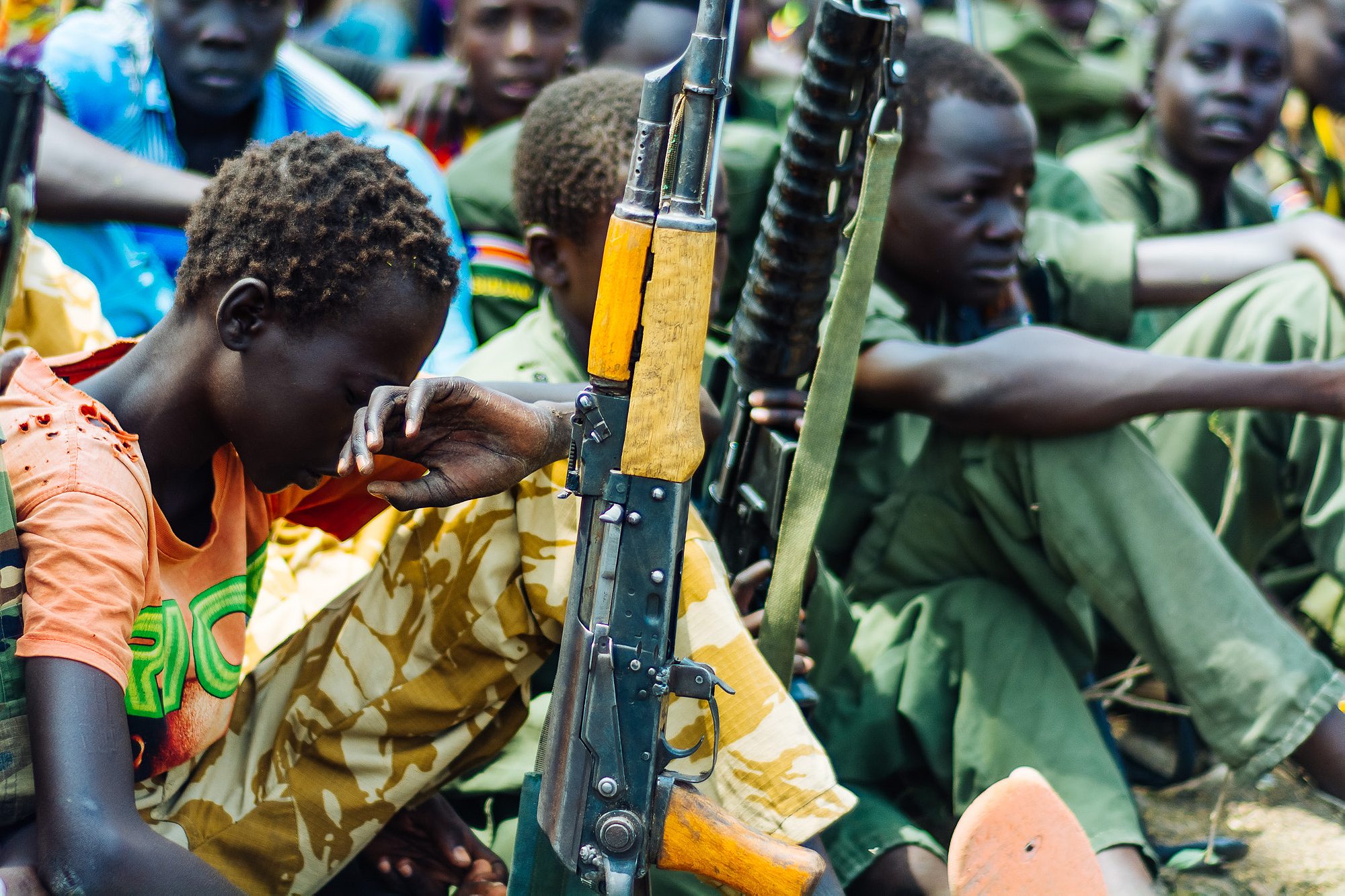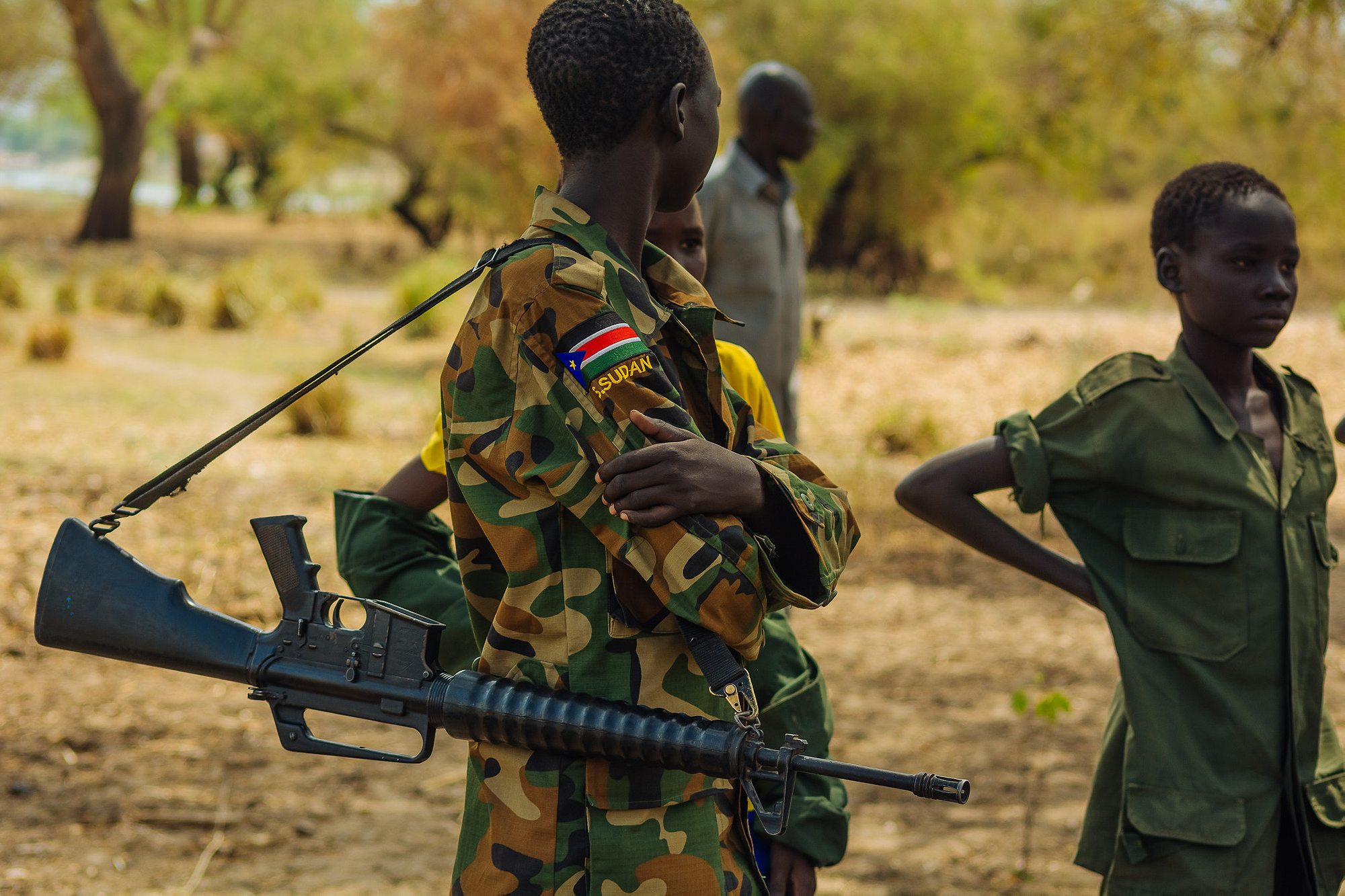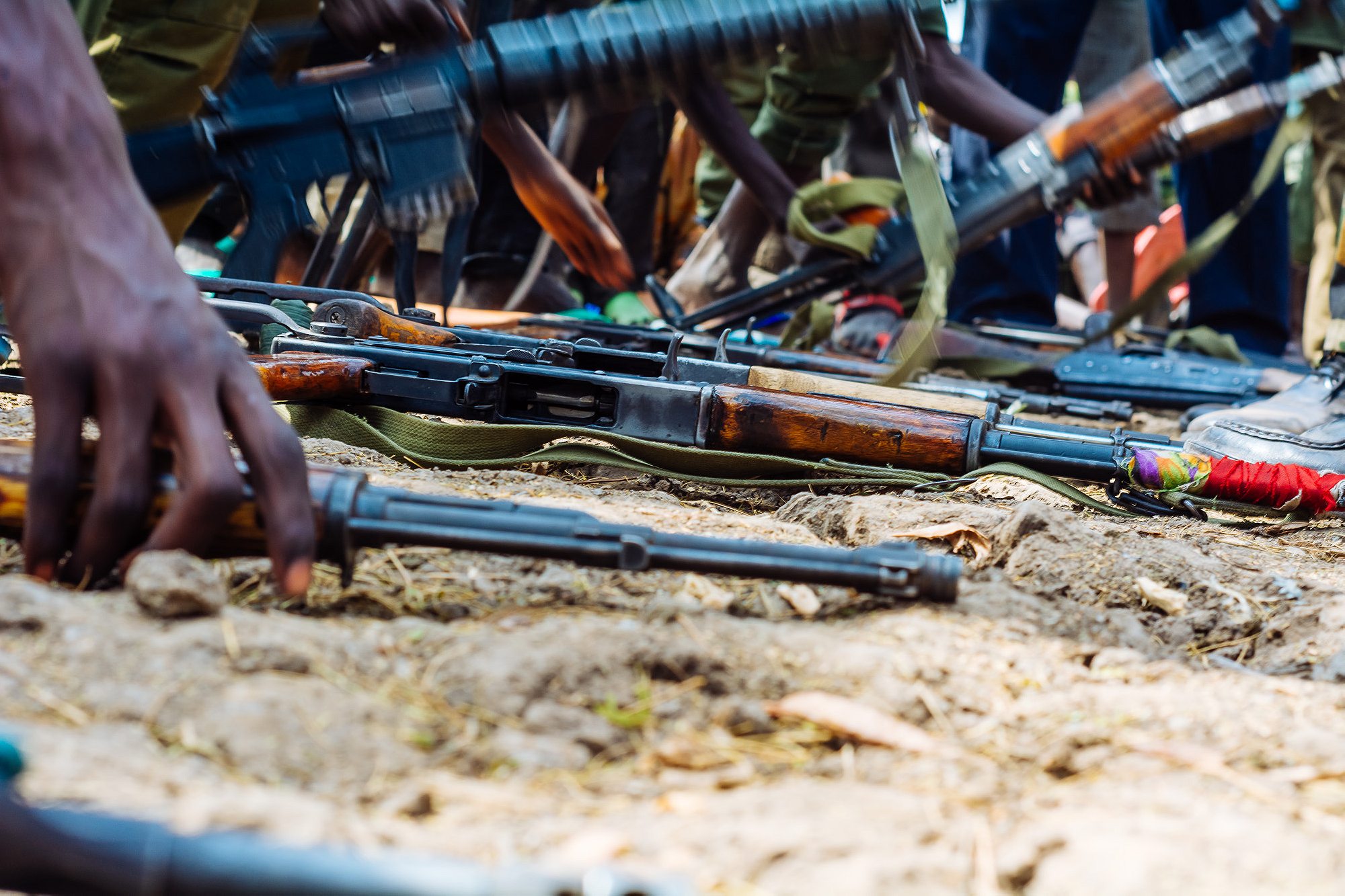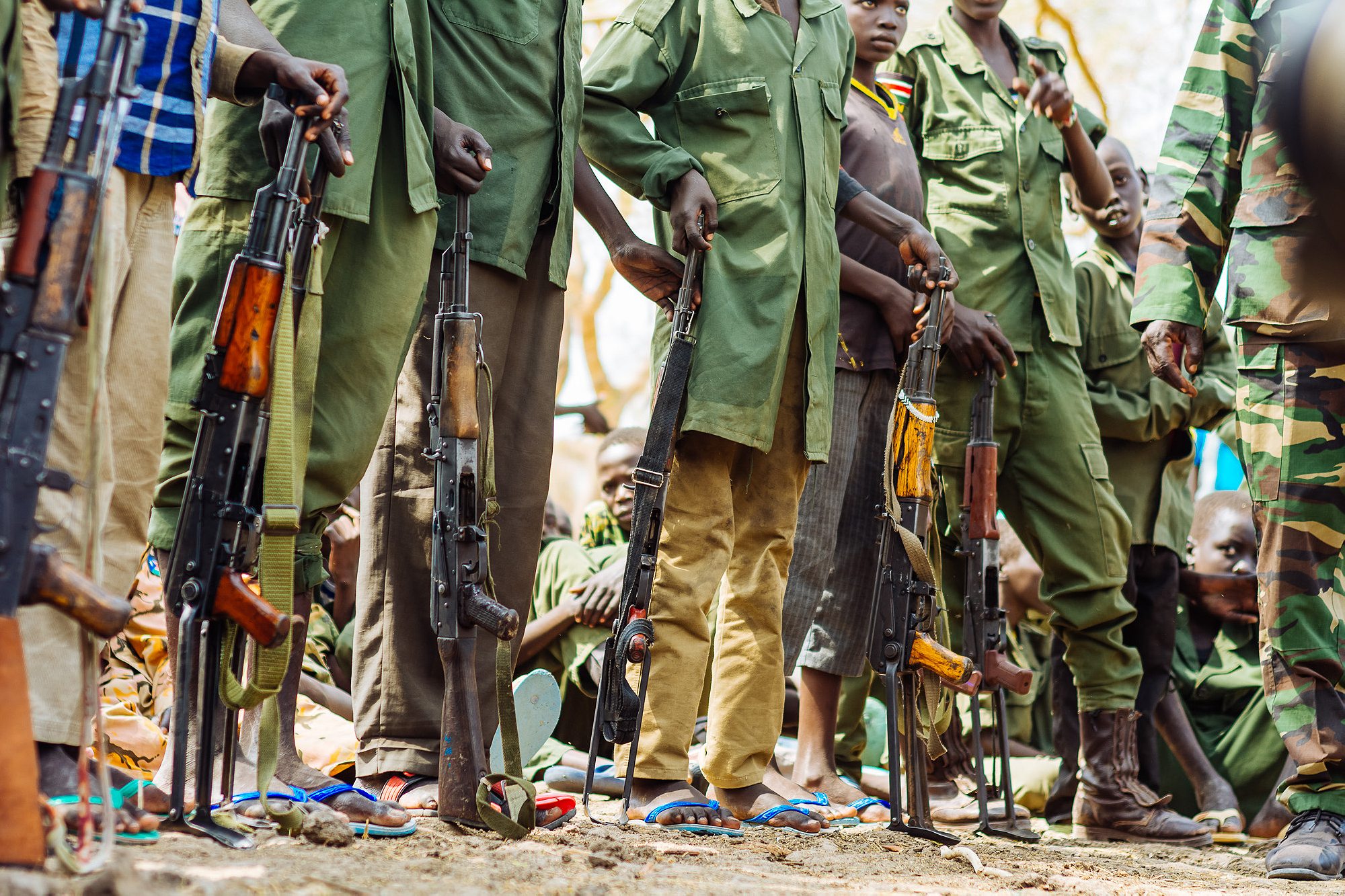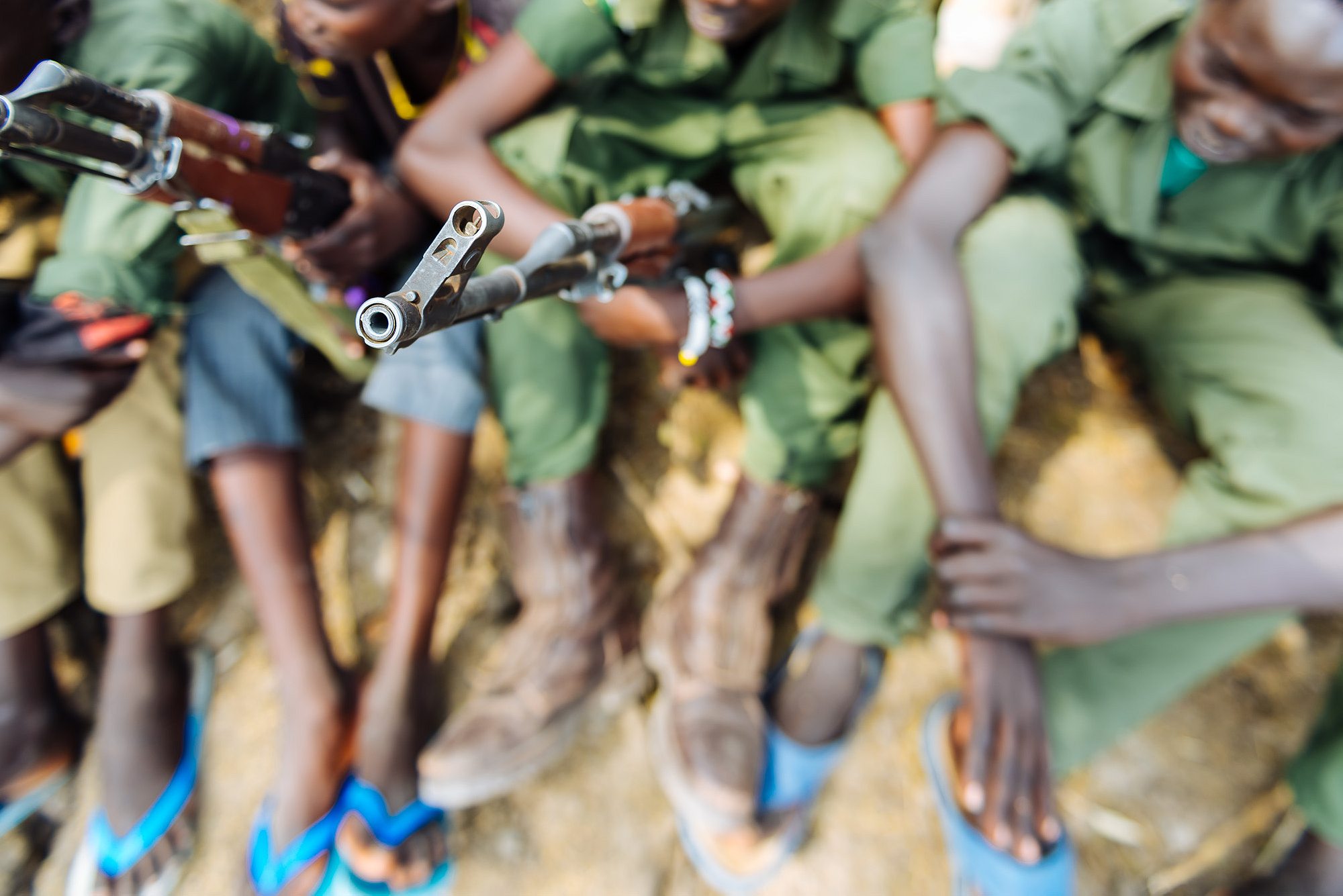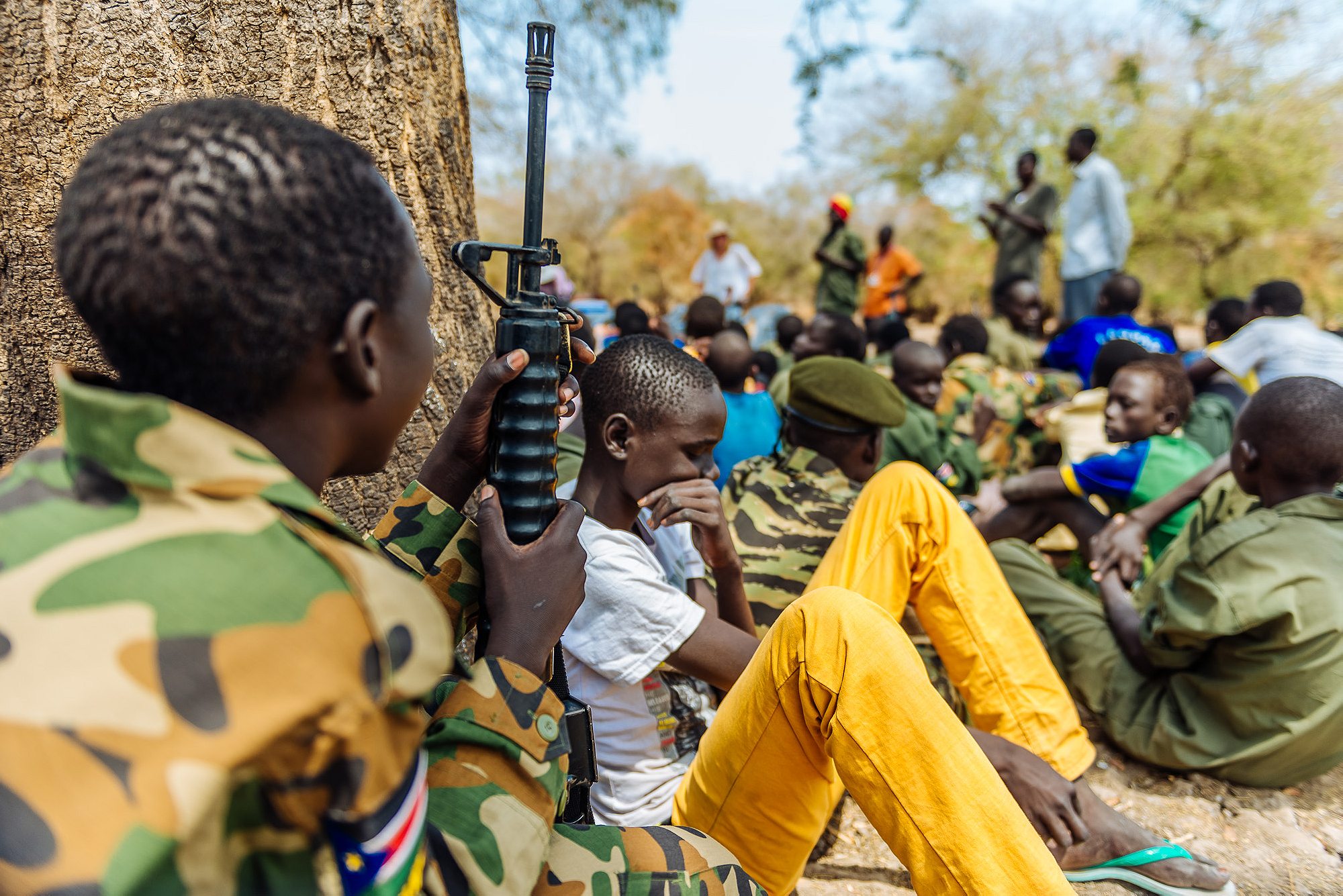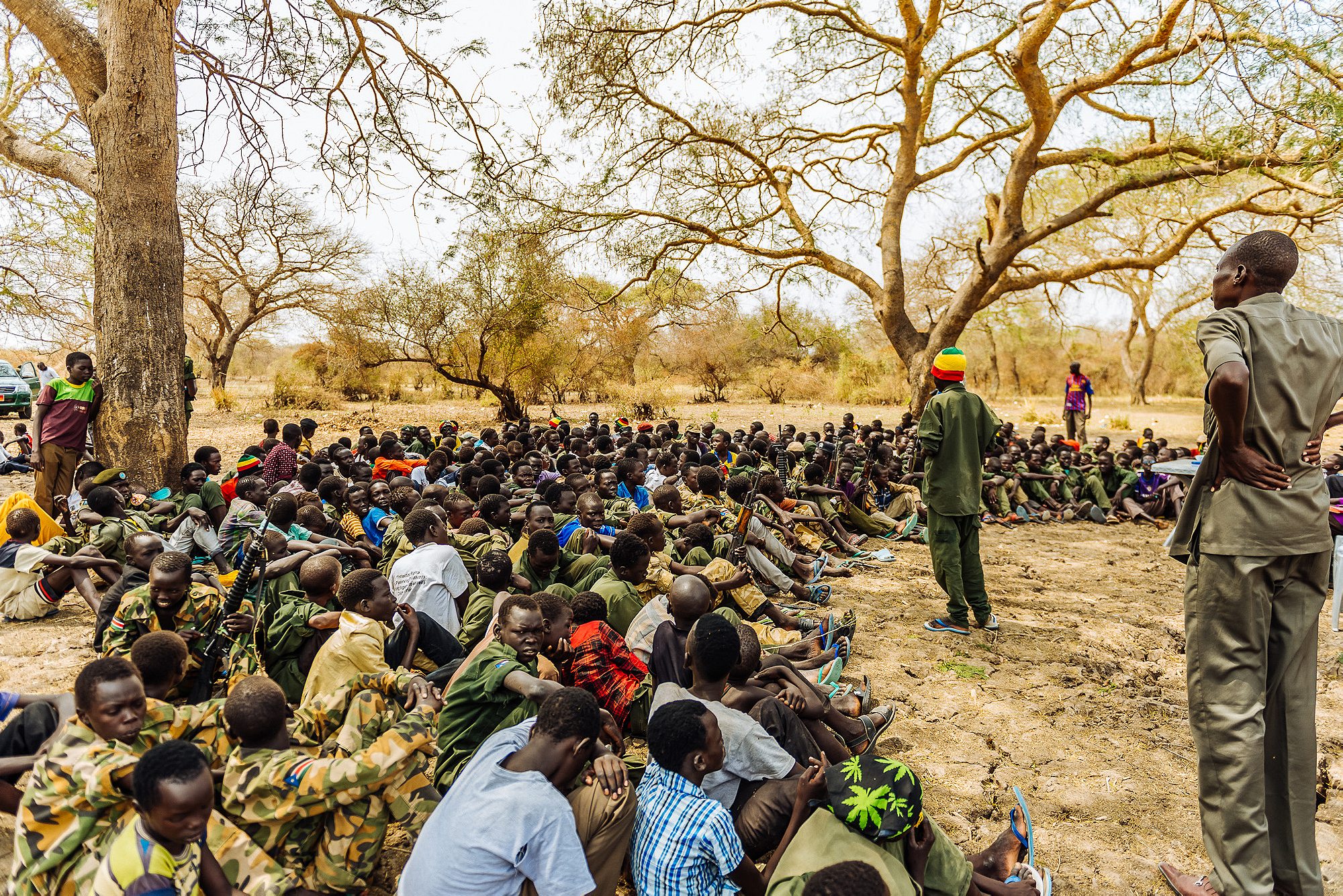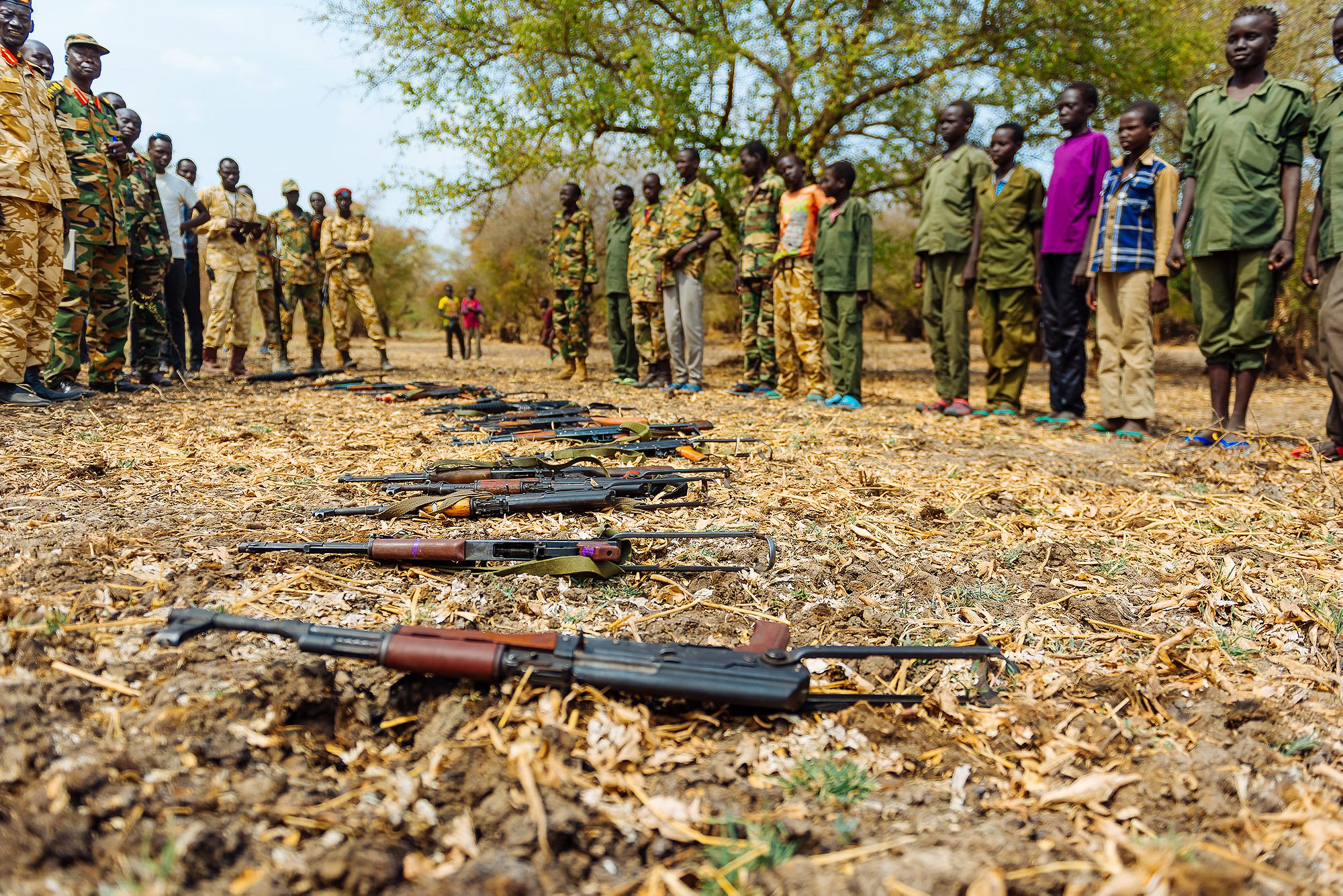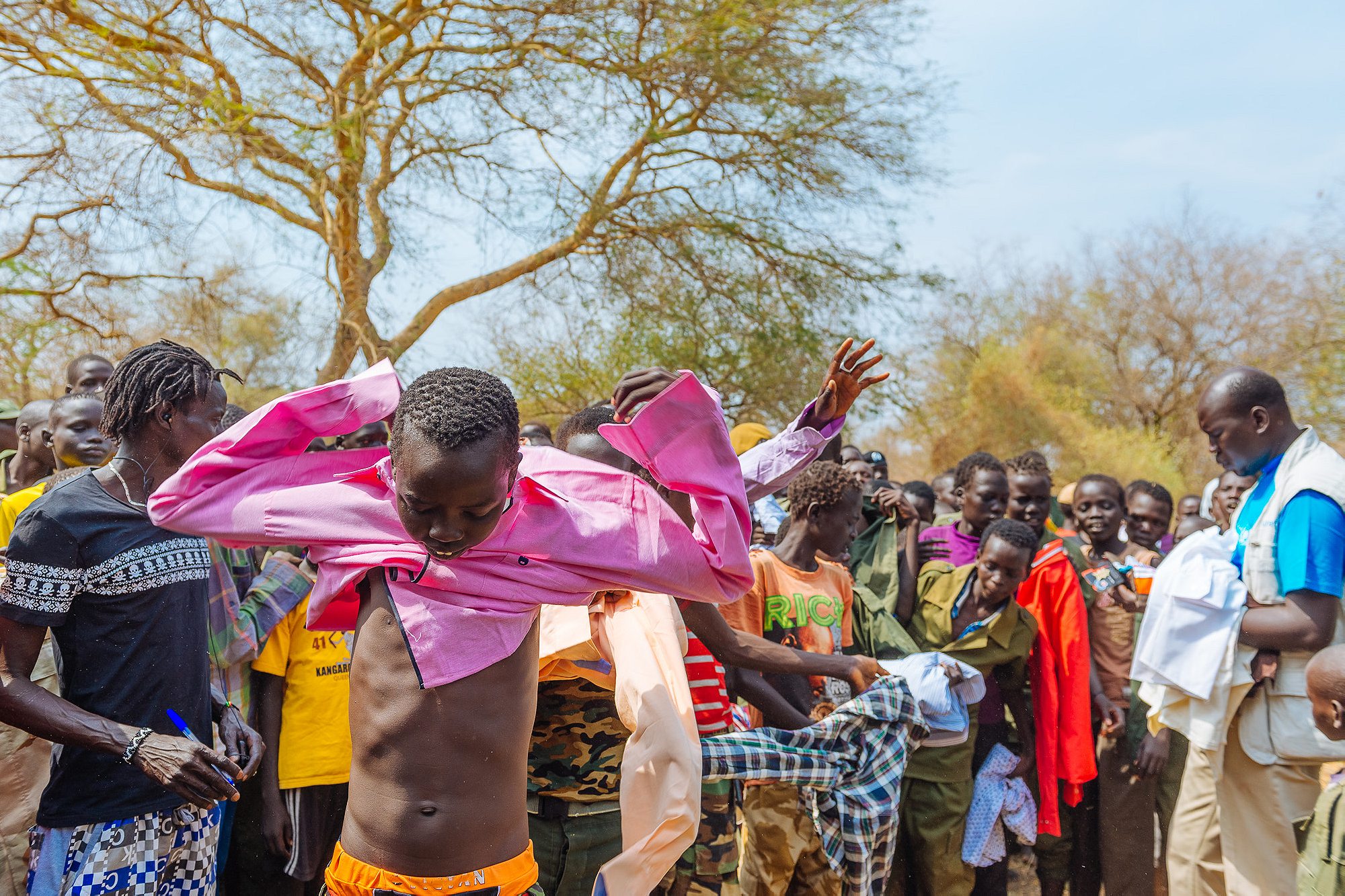A photographer attends one of the largest demobilization ceremonies of child soldiers in South Sudan.
When we got to Pibor, children were everywhere. And they were armed. The ceremony was about to begin. I had traveled with UNICEF to Jonglei State in South Sudan to observe and document one of the largest demobilizations of child soldiers ever. The event had been organized after militants from the so-called “Cobra Faction” had announced they would hand over 3,000 minors who fought in their ranks.
There were 280 children in front of us. I was told I could not photograph their faces. Aged 11 to 17, some had been fighting for up to four years and many had never attended school. According to UNICEF, over 12,000 children have been recruited and used as soldiers by armed groups in the country this past year.
The kids looked exhausted. Maybe they hadn’t eaten all day, maybe they had been waiting here since the early morning. Maybe they just couldn’t wait for this ceremony to be over. Many speeches were given and they sang songs. At the end, they took off their military uniforms in exchange for civilian clothes. That’s when I noticed relief and even joy.
Then came the time for the surrender of weapons. The kids stood up with their guns at their side and a military commander from the former rebel group gave a brief speech. The children laid down their weapons and marched away, leaving them on the ground behind them. Then they turned around and faced their former commanders, the guns scattered between them.
From now on, these children will receive basic health care from UNICEF, as well as food, water and clothing to help them get ready to return to their families. But simply locating their relatives is a daunting task in a country where more than one million children have either been displaced internally or have fled to neighboring countries since fighting broke out in December 2013. After the ceremony was over, the kids were excited. They laughed at each other when the clothes they had been given were too large or too small. But none of the kids I spoke to knew where their families were. Their priority, they said, was first to learn how to read and write.
